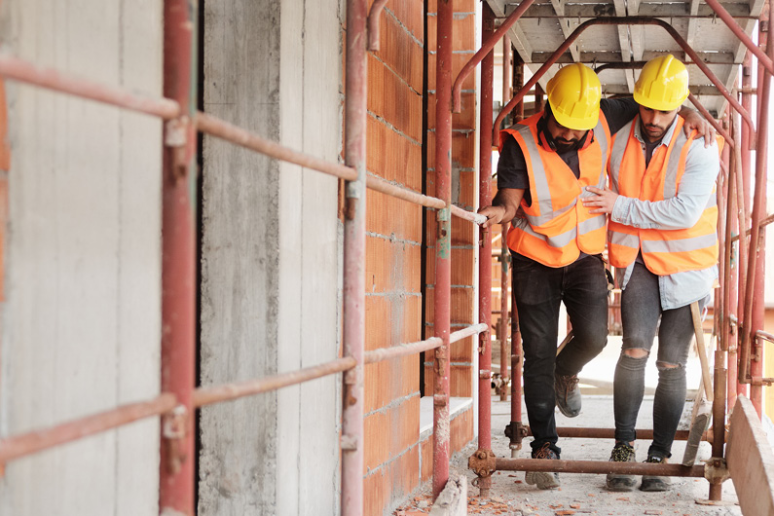You may be in the mood to throw a house party. Maybe New Year’s Eve is approaching, and you want to help your friends ring in the new year. Maybe it’s your best friend’s 30th birthday in a month, and you want to celebrate.
Whatever your reason for wanting to throw a party, you need to consider your responsibilities as a host. If something goes wrong, you could be responsible. You could be named the defendant in a civil lawsuit, or prosecutors might charge you with a crime.
Potential liability doesn’t mean you should avoid parties. It simply means you should consider the following questions before sending out invitations.
Social Host Liability: Will Underage Guests Have Access to Alcohol?
When you intend to host a party, all of your guests may be adults well above the legal drinking age. In this scenario, you have a little less to worry about. But if you are going to have guests who are under 21 years old, you must take steps to prevent them from drinking.
Depending on your state law, it may be a criminal offense to furnish individuals under 21 years with alcohol. Also, more than half of states hold you civilly liable if an intoxicated underage guest causes property damage or bodily injuries. The National Conference of State Legislatures (NCSL) provides a helpful chart for host liability for underage drinking.
You also have to worry about your of-age guests over-imbibing. You could be held responsible for someone who becomes intoxicated and hurts someone else. For example, a drunk driving crash victim could sue you for over-serving the drunk driver at your party.
You need to know your state’s social host laws before throwing a party. Some states do not have specific social host statutes. A few states, like California and New York, generally absolve hosts from liability. Many other states allow hosts to be held civilly responsible for any harm an intoxicated guest causes.
To learn about your state’s law, start with Nolo’s resource for each state’s social host liability.
Premises Liability: Is Your House Safe for a Party?
When hosting a party, alcohol should not be your only concern. You have to consider the condition and safety of your house or apartment. The physical premises need to free from hazards that could hurt your guests.
Under your state’s premises liability law, you could be responsible for a guest’s injury if you knew or should have known about the hazard that caused them harm. Take a close look at your home, and if anything is concerning, take time to repair it or warn guests about it.
This chart by Wells, Anderson & Race, LLC can help you identify your state’s premises liability laws.
Also, take the time to inquire as to whether any of your guests have a severe allergy. Do your best to avoid ingredients that could cause an allergic reaction or make sure foods are clearly separated and labeled. This way, guests can avoid any foods or beverages that could harm them.
If you fail to warn guests about possible allergens in the food, you could be liable for a guest’s injury.
Do You Have Liability Insurance?
One of the ways to protect yourself is by having a homeowner’s or renter’s insurance policy that covers bodily injuries and property damage. An insurance policy cannot protect you from all forms of host liability. But if someone trips and gets hurt, this policy may cover that individual’s medical expenses.
Contract Law: Does Your Lease Allow House Parties?
You may be ready to host a party in a way that keeps all of your guests safe. The house or apartment may be well-maintained, and you may have spread the word about using designated drivers or rideshare services.
But there is another important step. If you rent your current apartment or house, pull out a copy of your current lease and read it over. Hosting a large, noisy gathering may violate the lease. If your landlord catches you, or a neighbor informs the landlord, you could face fines or eviction.
Lease provisions are a particularly important consideration if you live in a college town. Many landlords who rent to college students are wary of parties involving too many people and too much alcohol. Things like large kegs can lead to underage drinking, excessive noise, and property damage. Because of these risks, the landlords may specifically prohibit large gatherings or kegs on the premises.
Local Law: Does Your City Have a Noise Ordinance?
When you are preparing to throw a house party, consider how many people you will have, whether they will be outside, and how late they may stay. Is there going to be a DJ, band, or other loud music? Overall, you need to consider how noisy and disruptive the gathering could become.
If your city or county has a noise ordinance, which many do, you need to keep the noise down after a certain time. If your house party is too loud after the designated time, your neighbors could call the police. Violating a local noise ordinance could result in a ticket and a fine.
Most likely, you can find information on a local noise ordinance through an online search.
 By Victoria Langley,
By Victoria Langley, 

